
Centre of Excellence in Infectious Disease Research launched
The University of Liverpool and Liverpool School of Tropical Medicine (LSTM) have launched a new joint centre which aims to address the urgent need to develop new antimicrobials and accelerate solutions for existing and emerging infections (University of Liverpool, 2017). Translating research from across these two institutions, the Centre of Excellence in Infectious Diseases Research … Continue reading Centre of Excellence in Infectious Disease Research launched

Eating disorders are affecting more UK women in their 40s and 50s than expected, finds new sudy
In a UK study of 5,320 women, 3% were found to have an active eating disorder in mid-life, a figure higher than expected as eating disorders are primarily associated with adolescence or early adulthood (University of Bristol, 2017). The research, using data from the University of Bristol’s Avon Longitudinal Study of Parents and Children cohort, … Continue reading Eating disorders are affecting more UK women in their 40s and 50s than expected, finds new sudy
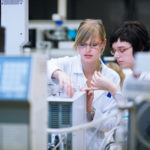
£1.5m boost for cancer research in Liverpool
Liverpool scientists and doctors are set to receive a major cash boost for research into cancer (University of Liverpool, 2017). Cancer Research UK and NIHR plan to invest nearly £1.5m over the next five years in ground-breaking work at the Liverpool Experimental Cancer Medicine Centre (ECMC). The ECMC is a collaboration between researchers at the … Continue reading £1.5m boost for cancer research in Liverpool
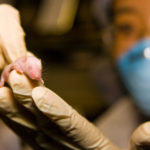
New understanding of AIDs-related dementia
Researchers from Cardiff University and UCLA have made a breakthrough in the understanding of AIDS-related dementia, discovering the role of a neuron protein which was also found to affect learning abilities in healthy subjects (Cardiff University, 2017). Professor Kevin Fox, who led the work at Cardiff University’s School of Biosciences, said “Our work represents a … Continue reading New understanding of AIDs-related dementia

Wearable technology can tell when you’re going to get ill
A new study has found that wearable technology can be used to tell if someone is falling ill (New Scientist, 2017). Stanford University geneticist Michael Snyder wore eight fitness tracking devices every day for two years to see if there were any differences between them (Scientific American, 2017). He and several colleagues also put the … Continue reading Wearable technology can tell when you’re going to get ill
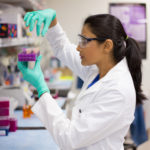
Statins may reduce the risk of blood clots in the vein
A study published by Dr Setor Kunutsor of the Musculoskeletal Research Unit in the University of Bristol’s School of Clinical Sciences, with colleagues from the University of Leicester, has confirmed that statins could play an important role in reducing the risk of venous thromboembolism (University of Bristol, 2017). Statins are groups of medications that reduce … Continue reading Statins may reduce the risk of blood clots in the vein
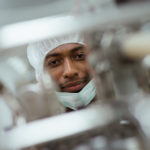
Heart attack risk in rheumatoid arthritis patients almost halved by biologic drugs
A biologic drug which treats rheumatoid arthritis has been shown to reduce the risk of heart attacks in arthritis patients by up to 40% (University of Manchester, 2017). Patients with rheumatoid arthritis have a 60% higher risk of heart attacks than the general public, which is thought to be linked to the inflammation caused by … Continue reading Heart attack risk in rheumatoid arthritis patients almost halved by biologic drugs

New research on how bacteria resists last-resort antibiotic
A team of University of Bristol-led researchers has provided the first clues to understand how the mcr-1 gene protects bacteria from colistin, a last resort antibiotic used to treat life-threatening bacterial infections that do not respond to other treatment options (University of Bristol, 2017). Last year, members of the team, led by Dr Jim Spencer … Continue reading New research on how bacteria resists last-resort antibiotic
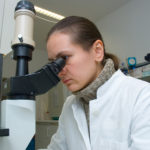
Aberystwyth University submits planning application for new Innovation Campus
A planning application has been submitted for a new £40.5m Innovation and Enterprise Campus at Aberystwyth University (WalesOnline, 2017). Based on the University’s Gogerddan campus, the Aberystwyth Innovation and Enterprise Campus (AIEC) development will feature a bio-refining centre, future food centre, analytical science laboratories and a seed processing and biobank facility. The campus is planned … Continue reading Aberystwyth University submits planning application for new Innovation Campus

Swansea University study looking at delaying the onset of dementia
Dr Claire Hanley, a psychologist from Swansea University’s College of Human and Health Sciences is recruiting for a study using transcranial direct current stimulation, a technology which could ultimately delay the onset of dementia (Swansea University, 2017). Dementia costs £1.4bn per year in Wales. Dr Hanley specialises in cognitive neuroscience, specifically what happens to the … Continue reading Swansea University study looking at delaying the onset of dementia








